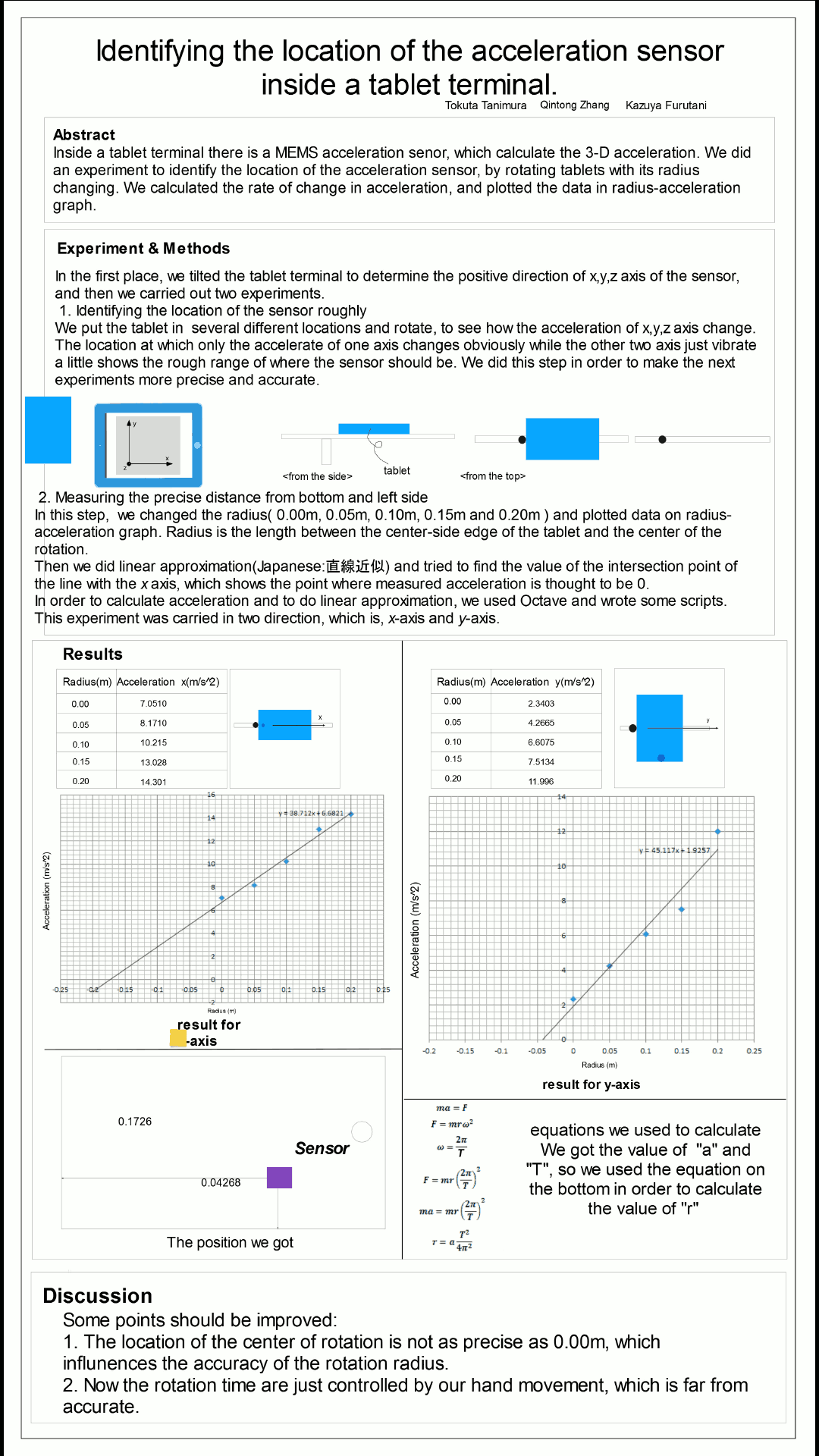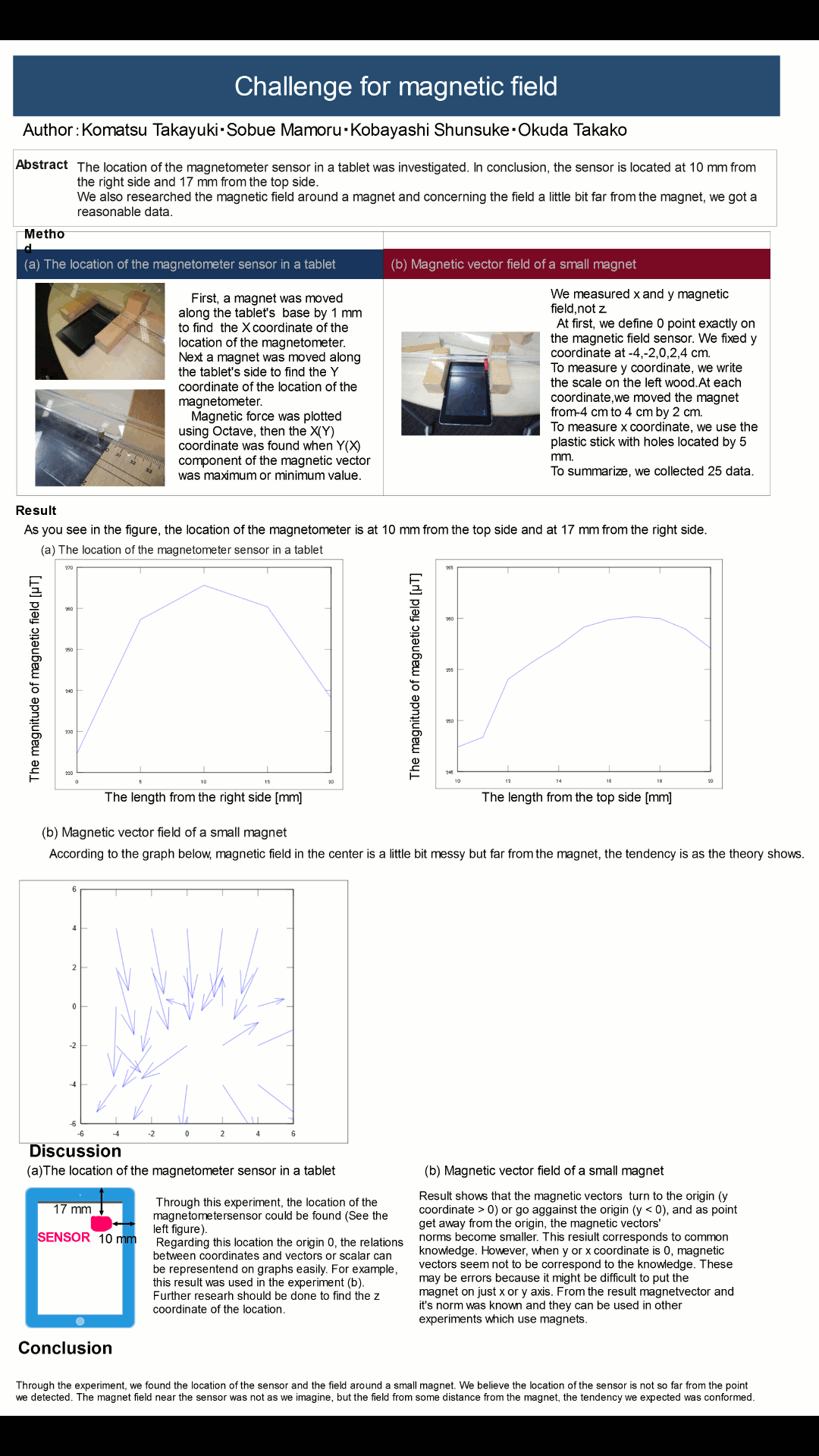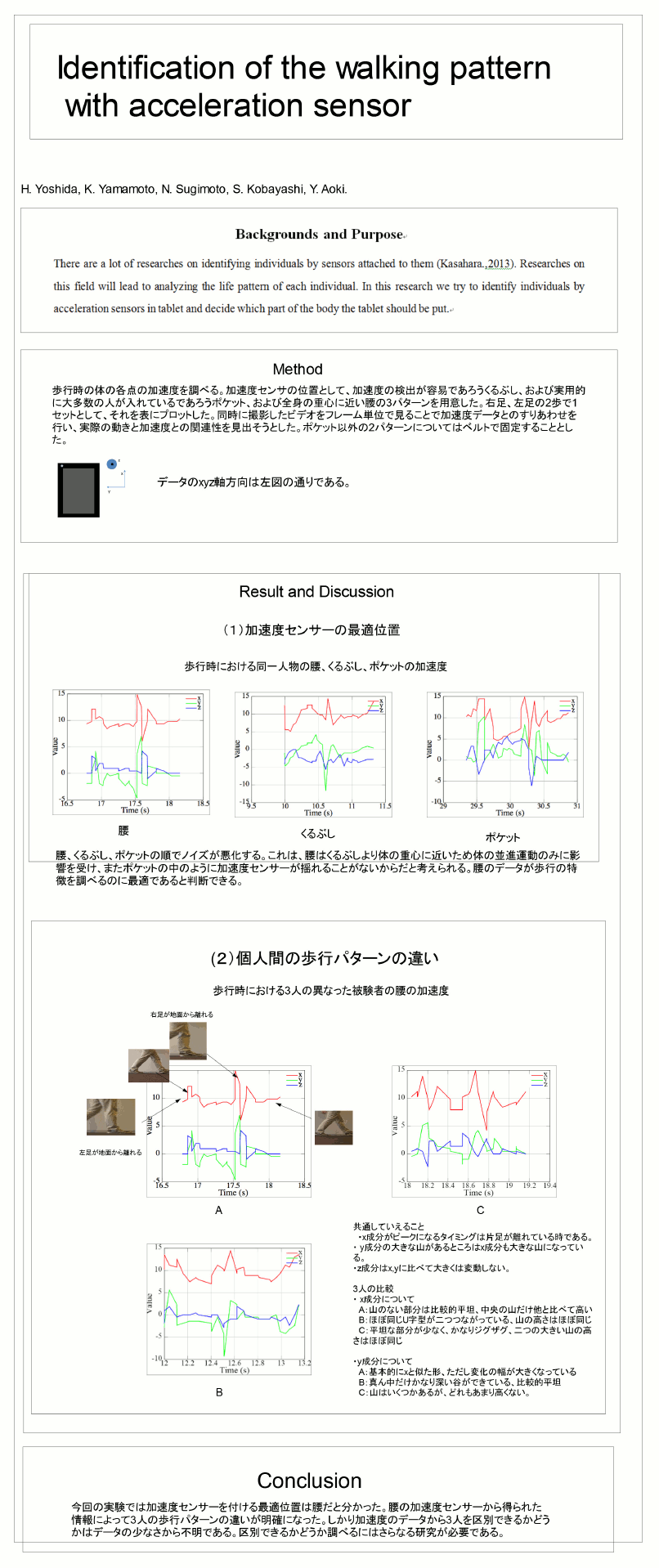
Seminar materials

Seminar materials
This seminar is available during the spring/summer semester of 2019
The First-Year Seminar for Natural Sciences Students is aimed at introducing elements of scientific thinking and basic research skills to students who are just starting their studies at Tokyo University. The seminar format stresses interactivity and active participation by having only about 20 students in this seminar group. Students are further divided into smaller 3- to 4-person teams for problem solving exercises.
We start the seminar by discussing the importance of empirical evidence in scientific thinking and in accumulating reliable knowledge about Nature. We consider various sources of information, including direct measurements, published literature, and online resources. Students get a chance to evaluate the reliability of various information sources and to think about the meaning of truth in science.
We then move on to methods of collecting empirical evidence through measurements. We talk about the strengths and weaknesses of our own senses and and how our senses can be augmented by various types of sensors. We learn about the operating principles and characteristics of several groups of sensors that are commonly available in smart phones and tablets, including accelerometers, gyroscopes, magnetometers, etc.
Several software tools are introduced to facilitate real-time measurements and data acquisition with Android devices. We learn to perform measurements and to process digital data using the online version of GNU Octave. This project allows the students to get direct experience in data processing and simple programming. We learn how raw measurement results are gradually turned into knowledge about the processes or phenomena that were observed in the experiments.
Although the actual experimental tasks solved by seminar participants are drawn from mechanics and physics, the concepts are general and applicable to many fields of natural sciences. In general, we learn how natural processes are observed, how raw measurement data is collected and transformed into concise results through models and abstraction. This process allows us to observe many natural processes that cannot be felt directly by our senses.
During final seminar sessions, students will prepare posters, summarizing the results of their experiments. We hold a small workshop at the final seminar where each group makes short presentations.
Various on-line resources are provided to help with data processing exercises:
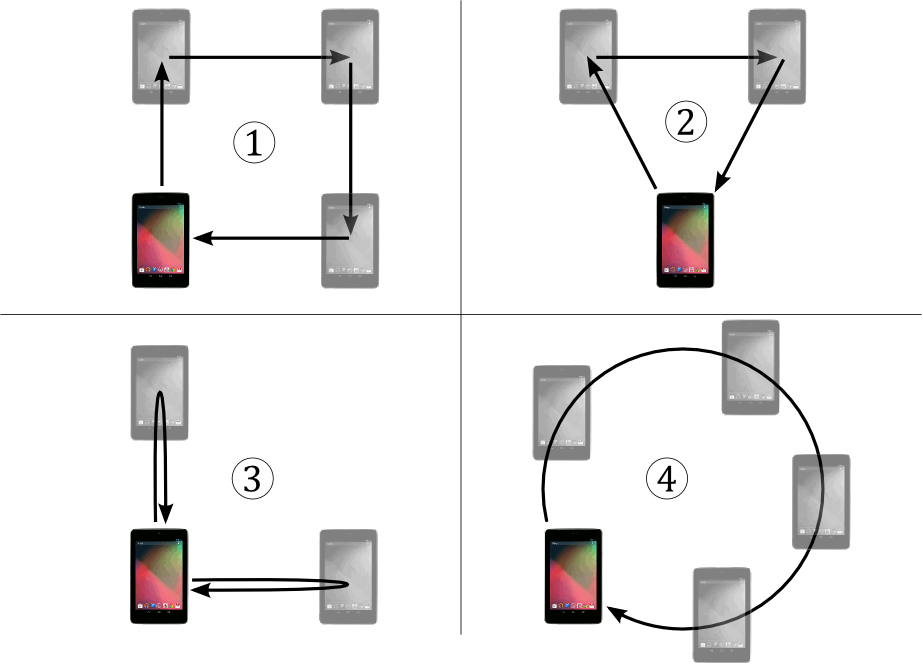
Fig. 1: Path shapes used in the accelerometer measurements
The first practical measurement involves the reconstruction of the movement
path of a tablet from measured acceleration data. This exercise is done
in several groups, where each group measures a different path.
Some of the path shapes are shown in Fig. 1.
There are four sample data files available for practice (CSV format):
Further experiments are done in six small groups. Some sample data sets are provided for practice. Details can be found in the seminar notes.
Accelerometer, gyroscope, and magnetometer data measured at different tablet positions on the turntable arm (zero is at the rotation center):
| Position | Accelerometer | Gyroscope | Magnetometer |
|---|---|---|---|
| -150 mm | a-15.csv | g-15.csv | m-15.csv |
| -100 mm | a-10.csv | g-10.csv | m-10.csv |
| -50 mm | a-05.csv | g-05.csv | m-05.csv |
| 0 mm | a00.csv | g00.csv | m00.csv |
| 50 mm | a05.csv | g05.csv | m05.csv |
| 100 mm | a10.csv | g10.csv | m10.csv |
| 150 mm | a15.csv | g15.csv | m15.csv |
| 200 mm | a20.csv | g20.csv | m20.csv |
| 250 mm | a25.csv | g25.csv | m25.csv |
| 300 mm | a30.csv | g30.csv | m30.csv |
Sound wave recorded for a NERF dart being fired and hitting a target Dart1.csv
Accelerometer recordings (over an hour) of a tablet swinging up and down on a long spring:
Tablet only:light.csv
Tablet and a weight (CF70 flange):heavy.csv
Accelerometer recordings of traveling waves in a stretched spring:
Longitudinal:long_acc.csv
Transverse:perp_acc.csv
Magnetic field values mapped over a 12 x 12 grid with background points: map12.csv
Air pressure recording indoors: indoors_prs.csv
Air pressure recording outdoors in wind: windy_prs.csv
Walking down and up the stairs from 12F to B2F and back: f12_prs.csv
Magnetic recording data: message.csv
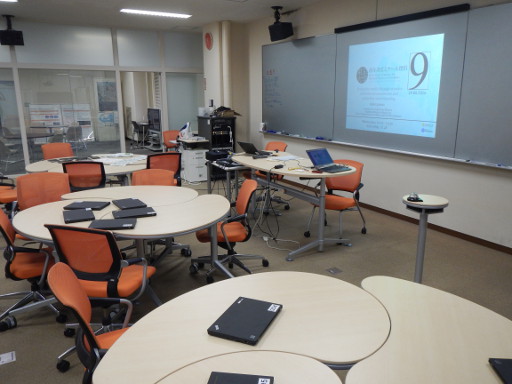
KALS classroom
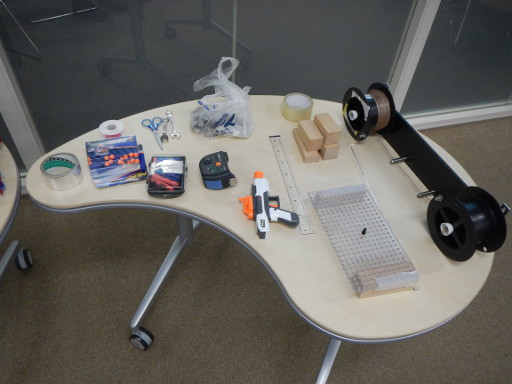
Experiment supplies

Experiment tablets
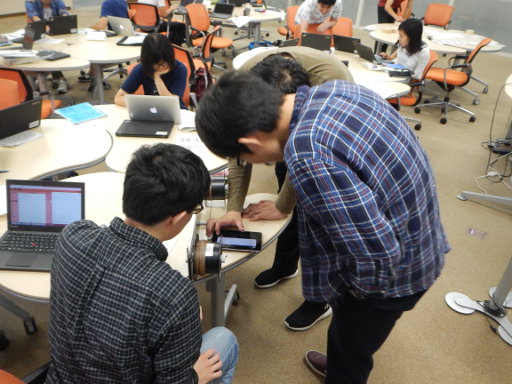
Reading a magnetic message
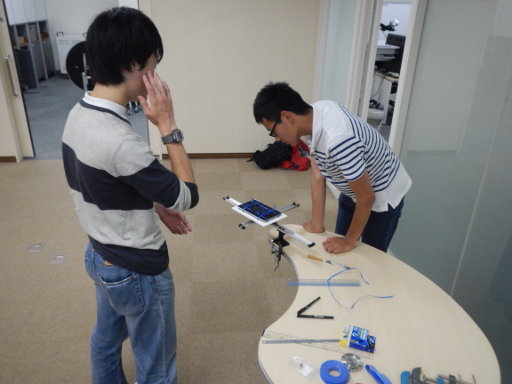
Acceleration measurement
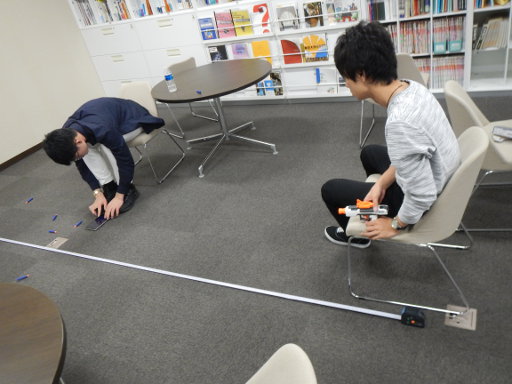
Dart speed measurement
This seminar was held for the first time in spring 2015. A few views of the seminar venue can be seen here:

Seminar classroom

Sensor demonstrations

Experiment supplies
Students prepared posters during their final experiments and held a mini conference, presenting their results to other students.
